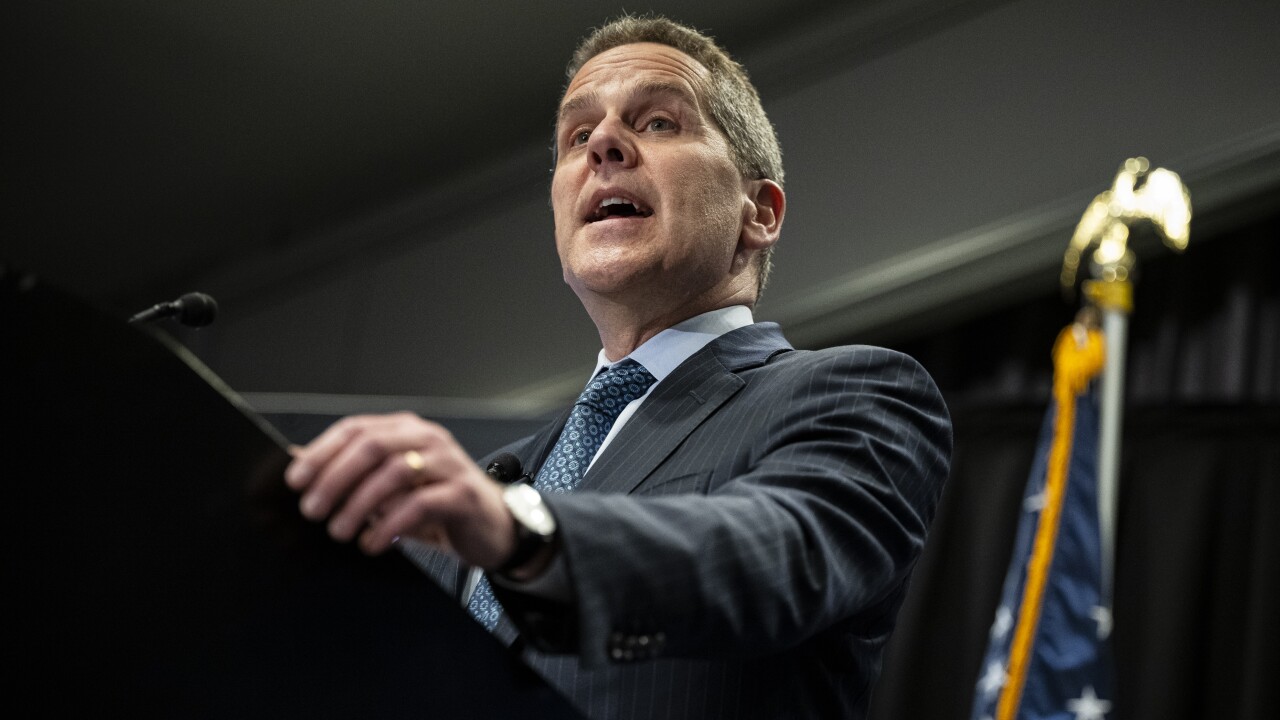-
State regulators closed a bank on each coast Friday, bringing the failure tally this year to 73.
September 23
Securities regulators have charged three executives of a failed bank in Virginia with deceiving investors about the health of its loan portfolio at the apex of the financial crisis.
The executives of the $985 million-asset Bank of the Commonwealth in Norfolk, Va., underreported its nonperforming loans over a roughly two-year period starting in November 2008, the Securities and Exchange Commission said Wednesday in a complaint filed in U.S. District Court in Norfolk.
The defendants are: Edward Woodard, the bank's founder and chief executive; Cynthia Sabol, its chief financial officer; and commercial loan officer Stephen Fields, who also had been an examiner with the Federal Reserve Bank of Richmond and oversaw the bank's biggest portfolio of construction and development loans.
The executives told the public that the bank's portfolio of loans, which made up 94% of its assets in 2008, was managed conservatively and that the bank adhered to underwriting standards designed to minimize reserve losses during a time of economic upheaval, according to the SEC.
The SEC alleges that Woodard knew that the value of the bank's loan portfolio was deteriorating rapidly, yet worked to mask the problems in earnings releases and public statements. Though Sabol knew of efforts to hide the problems, she signed financial statements that attested to the statements' accuracy, according to regulators. Fields allegedly took part in the concealment, too.
"During times of financial stress, it's more important than ever for executives to make full and honest disclosure to the investing public," Scott Friestad, associate director of the SEC's enforcement division, said in a news release. "Commonwealth's executives did the opposite and hid the company's worsening performance from shareholders through masking practices that understated the losses on its most troubled loans."
The SEC charges that Bank of the Commonwealth understated its allowance for loan and lease losses by between 17% and 25% over the 21-month period at issue in the case, and that the activity caused the bank to misrepresent its loss before taxes by roughly 64% for the bank's 2008 fiscal year. According to the SEC, the bank also understated losses on real estate repossessed by the bank in two quarters, and underreported its total nonperforming loans for eight consecutive quarters. Regulators further charge the former executives with taking steps to make otherwise delinquent loans appear to be current.
The bank was
All three defendants invoked their Fifth Amendment right to refrain from testifying in the SEC's investigation. The government wants the court to bar the defendants from serving as officers or directors of public companies and to order them to pay penalties.
Woodard and Fields also face criminal charges of fraud following a parallel investigation by the Justice Department that stems from their management of the bank. The criminal trial is expected to start this March in Norfolk.
"Through many months of our own investigation we have concluded that Ed Woodard violated no securities laws," Andrew Sacks, a lawyer for Woodard, told American Banker. "We're disappointed the SEC feels the need to file suit. We certainly intend to oppose their allegations and to vigorously defend Ed against what they claim."
"We are deeply disappointed that the SEC chose to file this complaint and issue a prejudicial press release on the eve of a major criminal trial," said Solomon Wisenberg, a lawyer for Fields. "Mr. Fields vigorously disputes the SEC's allegations that he knowingly aided others in committing securities fraud and he looks forward to his day in court."
An attorney for Sabol did not respond immediately to a request for comment.





